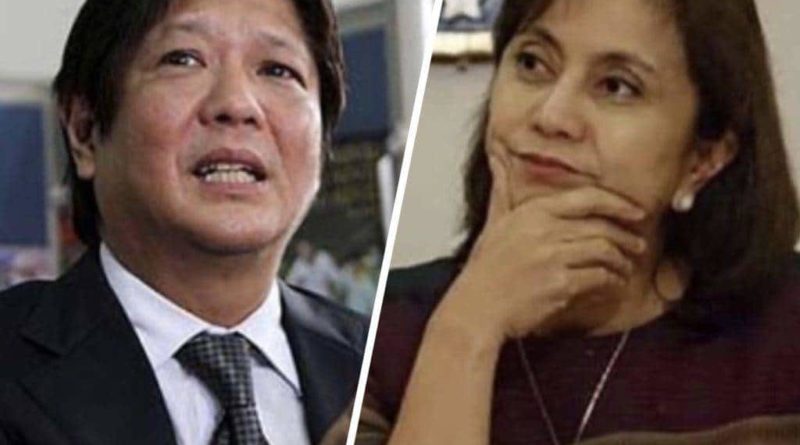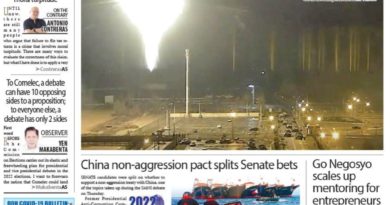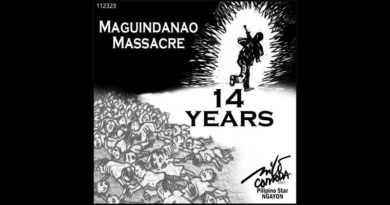2022 PHILIPPINE ELECTION: Economists prefer Robredo to Marcos for presidency, says think tank
.Philippine Vice President Leni Robredo and former senator Ferdinand Marcos Jr. (Photos: AP)
.
. 
Economists would prefer Vice President Leni Robredo to be the next president of the Philippines instead of former senator Ferdinand Marcos Jr., according to an April 26 report by consulting firm FocusEconomics.
This was because Robredo’s policies were regarded as more detailed and she was seen as having more policy experience than Marcos.
FocusEconomics noted that as voters gear up for the May 9 elections, “all eyes will be on the presidential contest, which has become a two-horse race between Bongbong Marcos, son of the late dictator Ferdinand Marcos, and vice president Leni Robredo,” although Marcos’ substantial lead in opinion polls had narrowed slightly in recent weeks.
Ads by:

Memento Maxima Digital Marketing
@[email protected]
SPACE RESERVE FOR ADVERTISEMENT
.
“Elections in the Philippines are generally decided based on the candidates’ charisma and personalities rather than their economic platforms, with the country’s mostly sound macroeconomic policy framework unlikely to change drastically regardless of who wins. That said, the election is already having a macroeconomic impact,” said the article written by FocusEconomics junior economist Matthew Cunningham.
Citing a Bloomberg survey of economists, the Barcelona-based think tank said that investor perceptions of Marcos appeared weak, raising market jitters, and most economists preferred a Robredo premiership given Marcos’ poor record during his six years as senator.
“Perhaps the most salient aspect of Marcos Jr.’s economic policy platform is its lack of clarity,” said FocusEconomics. “The candidate has refused to conduct traditional pre-election debates and has participated in few interviews. The website for his candidature contains no clear overview of his policy pledges.”
FocusEconomics further noted that Marcos’ record in office was generally considered to be poor, with nearly 70% of the laws he pursued in the Senate being connected with festivals and holidays, renaming roads and redrawing borders of provinces and cities, according to the New York Times.
“This suggests the potential for lackluster governance if elected and could feed into investor uncertainty, dampening private investment,” said FocusEconomics.
In contrast, FocusEconomics said Leni Robredo, as Vice President, rolled out a major anti-poverty program and managed part of the government’s Covid-19 response, and her policy platform contains far greater detail.
“Some of Robredo’s key policies are cracking down on corruption, reducing red tape and strengthening the antitrust watchdog in order to improve market competition and the ease of doing business,” said FocusEconomics. “Her pledges also include boosting investment in climate change adaptation and high-tech companies – suggesting a forward-looking agenda – plus beefing up the unemployment insurance scheme.”
On the other hand, FocusEconomics noted that there remained uncertainty regarding both candidates’ exact policies, which was likely restraining investment.
Ads by:

Memento Maxima Digital Marketing
@[email protected]
SPACE RESERVE FOR ADVERTISEMENT
.
Furthermore, both Marcos and Robredo supported the “Build, Build, Build” infrastructure program of current president Duterte Rodrigo, and both had downplayed the public debt level in comments to the media, which suggested that fiscal policies under either leader would continue with strong public investment and construction activity.
“This suggests that a Robredo presidency would be similar to a Marcos Jr. presidency insofar as ongoing fiscal largesse will likely continue, risking a debt ratings downgrade,” said FocusEconomics. “However, under Robredo, the funds are likely to be better targeted given the candidate’s greater policy experience and detailed pro-market policy proposals, which would bode more positively for investment and productivity growth ahead.”
FocusEconomics noted that while a fiscal policy that remained expansionary would boost economic activity, the Philippines needed to consolidate the currently high budget deficit to reduce pressure on the external balance and the currency.

Ads by: Memento Maxima Digital Marketing
@[email protected]
SPACE RESERVE FOR ADVERTISEMENT










